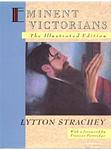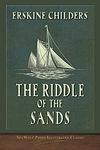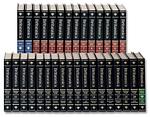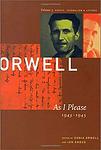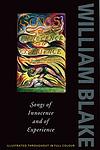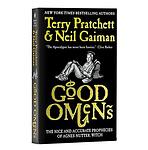The Greatest "United Kingdom" Books of All Time
Click to learn how this list is calculated.
This list represents a comprehensive and trusted collection of the greatest books. Developed through a specialized algorithm, it brings together 300 'best of' book lists to form a definitive guide to the world's most acclaimed books. For those interested in how these books are chosen, additional details can be found on the rankings page.
Genres
Countries
Date Range
Reading Statistics
Click the button below to see how many of these books you've read!
Download
If you're interested in downloading this list as a CSV file for use in a spreadsheet application, you can easily do so by clicking the button below. Please note that to ensure a manageable file size and faster download, the CSV will include details for only the first 500 books.
Download-
26. The Second World War by Winston Churchill
This book provides a comprehensive overview of the Second World War from the perspective of one of its most influential leaders. It covers the entire span of the war, from its origins in the political and economic turmoil of the 1930s, to the major battles and strategic decisions that shaped its course, to its aftermath and impact on the world. The author's unique perspective and firsthand experience, combined with his eloquent and insightful writing, make this a definitive account of one of the most important events in modern history.
-
27. Poems of W. H. Auden by W. H. Auden
This book is a collection of poems by a renowned 20th-century poet. The poems cover a wide range of themes, including love, politics, religion, and the human condition. The poet's unique style combines traditional forms with modernist free verse and his work is known for its technical achievement, emotional depth, and engagement with moral and political issues. The collection provides an overview of the poet's career, showcasing his development and evolution as a writer.
-
28. Collected Poems of T.S. Eliot by T. S. Eliot
This collection includes the works of a renowned 20th-century poet, featuring his most famous pieces such as "The Waste Land," "Four Quartets," and "The Love Song of J. Alfred Prufrock." The poet's works are known for their profound exploration of existential despair, disillusionment, and spiritual emptiness, often employing complex, fragmented structures and numerous allusions to mythology, religion, and contemporary culture. This compilation provides a comprehensive look at the poet's influential contribution to modernist literature.
-
29. Tractatus Logico-Philosophicus by Ludwig Wittgenstein
"Tractatus Logico-Philosophicus" is a seminal work in analytic philosophy that presents a comprehensive picture of reality and our knowledge of it. The book outlines a logical structure for all scientific discourse, arguing that language and its logical structure are the primary tools for understanding and representing the world. It proposes that all philosophical problems arise from misunderstandings of the logic of language, and that all meaningful propositions are pictures of states of affairs in the world. The book concludes with the famous line "Whereof one cannot speak, thereof one must be silent," suggesting that things that cannot be spoken about logically should not be spoken about at all.
-
30. Eminent Victorians by Lytton Strachey
"Eminent Victorians" is a biographical work that profiles four influential figures from the Victorian era. The book provides an in-depth look into the lives of Cardinal Manning, Florence Nightingale, Thomas Arnold, and General Gordon, exploring their respective contributions to British society during the 19th century. Through these portraits, the book offers a critical and often satirical analysis of Victorian values, institutions, and moral attitudes, challenging the idealized narrative of the era.
-
31. The Da Vinci Code by Dan Brown
This thriller novel follows symbologist Robert Langdon and cryptographer Sophie Neveu as they investigate a murder in the Louvre Museum in Paris. The murder leads them to a trail of clues hidden in the works of Leonardo da Vinci, revealing a religious mystery protected by a secret society for two thousand years. The mystery involves a conspiracy within the Catholic Church and threatens to overturn the foundations of Christianity.
-
32. Flaubert's Parrot by Julian Barnes
The novel centers around a retired doctor's obsession with the life and works of Gustave Flaubert, a 19th-century French writer. The doctor's fascination leads him on a quest to find a stuffed parrot that once belonged to the writer. The novel is a blend of biography, literary criticism, and personal memoir, and it explores themes such as the nature of art and the difficulties of interpreting the past.
-
33. The Complete Poetry and Selected Prose of John Donne by John Donne
This book is a comprehensive collection of the renowned metaphysical poet's work, featuring all of his poetry and a selection of his prose. The collection includes his sensual and spiritual poems, satires, elegies, and sermons, showcasing his unique blend of intellect and emotion, wit and wisdom. The book offers readers a deep insight into the poet's complex mind and a thorough understanding of his contributions to 17th-century English literature.
-
34. The Complete Poetry and Prose of William Blake by William Blake
This comprehensive collection features the complete works of a renowned 18th-century English poet and artist, known for his symbolic and critical approach to societal issues. It includes all his prophetic and illuminated poetry, prose, sketches, and illustrations, providing a deep insight into his visionary and revolutionary mind. The book also contains annotations and commentary, making it an invaluable resource for understanding the depth and breadth of the author's philosophical and artistic contributions.
-
35. Fingersmith by Sarah Waters
The novel is a gripping tale set in Victorian England, revolving around two young women, a petty thief and a rich heiress, whose lives intertwine in unforeseen ways. The thief is part of a con to defraud the heiress of her fortune, but as the plot thickens, the lines between deception and truth, loyalty and betrayal, love and manipulation get blurred. The narrative is filled with unexpected twists and turns, exploring themes of gender, sexuality, and class, and keeps the readers on the edge till the end.
-
36. An Essay Concerning Human Understanding by John Locke
This philosophical work explores the concept of human understanding, proposing that all knowledge is derived from experience. The author argues against innate ideas, suggesting instead that the mind is a blank slate at birth, filled over time through sensory and reflective experiences. The book covers a wide range of topics, including language, memory, identity, and the limits of human knowledge, and is considered a foundational text in empiricism.
-
37. Poems of Alfred Lord Tennyson by Alfred Lord Tennyson
This book is a collection of poems by a renowned 19th-century British poet who is well-known for his descriptive and narrative style. The compilation includes some of his most famous works that delve into themes of nature, beauty, love, death, and time. The poet's mastery in crafting rich imagery and evocative language is evident throughout the collection, making it a treasured piece of Victorian literature.
-
38. Riddle of the Sands by Erskine Childers
This novel is a classic early 20th-century spy thriller that follows two British yachtsmen who stumble upon a German plot to invade England while on a sailing trip in the North Sea. The duo must use their wits and sailing skills to outmaneuver the Germans and alert the British government of the impending attack. The book is notable for its attention to detail and realism, particularly in its descriptions of sailing and the North Sea coastline.
-
39. Encyclopedia Britannica by Encyclopedia Britannica
This comprehensive reference work is a general knowledge English-language encyclopedia. It is written by about 100 full-time editors and more than 4,000 contributors, who have included 110 Nobel Prize winners and five American presidents. The encyclopedia is regarded as one of the most scholarly of encyclopedias, covering a wide range of topics in depth and providing extensive bibliographies.
-
40. Collected Essays of George Orwell by George Orwell
This book is a compilation of essays by a renowned author, known for his sharp wit and critical eye. It covers a wide range of topics, from politics and language to literature and culture. The author's insightful and often provocative viewpoints provide a unique perspective on the world, challenging readers to question their own beliefs and assumptions. His straightforward writing style and keen observations make these essays as relevant today as when they were first published.
-
41. Mere Christianity by C. S. Lewis
"Mere Christianity" is a theological book that explores the common ground upon which all of those of Christian faith stand. It provides an intellectual defense of Christianity that centers on the Law of Nature, arguing that God is behind this law. The book also explores Christian values, the cardinal virtues, and the theological virtues, ultimately arguing for the reasonableness of Christianity. The final section of the book discusses the doctrine of the Trinity and the process of becoming a Christian.
-
42. Decline and Fall by Evelyn Waugh
This novel follows the story of Paul Pennyfeather, a young man studying at Oxford University who is unfairly expelled and forced to take a job as a teacher at a chaotic school in Wales. His life takes a turn when he meets a wealthy widow and gets sucked into the high society lifestyle, only to be betrayed and sent to prison. The narrative is a satirical critique of the British class system, education, and the moral corruption of the rich.
-
43. Earthly Powers by Anthony Burgess
"Earthly Powers" is a sprawling, complex novel that explores the intertwined lives of a homosexual British writer and an Italian-American Cardinal over the course of the 20th century. The narrative delves into themes of faith, homosexuality, and the nature of evil, while also providing a critique of modern society. It's a vivid tapestry of historical events, including two World Wars and Vatican II, providing a backdrop for the personal and spiritual struggles of its protagonists.
-
44. The Open Society by Karl Popper
This book is a critique of totalitarianism and a defense of liberal democracy. The author argues against the concept of a perfect, immutable society, instead advocating for an "open society" that allows for constant change and improvement. He criticizes theories of historical determinism and the notion of "the collective", emphasizing the importance of individual freedom and human rights. The book also examines and challenges the philosophies of Plato, Hegel, and Marx, linking their ideas to the rise of fascism and communism in the 20th century.
-
45. The Children of Men by P. D. James
Set in a dystopian future where mankind has become infertile, the novel centers on a history professor who becomes involved with a group of revolutionaries seeking to overthrow the oppressive government. As the world descends into chaos due to the impending extinction of the human race, a miraculous pregnancy offers a glimmer of hope. The professor must protect the pregnant woman and navigate the dangerous political landscape, while grappling with the implications of a world without children.
-
46. The Line of Beauty by Alan Hollinghurst
Set in the 1980s during the era of Margaret Thatcher's conservative government in Britain, this novel follows the life of a young gay man named Nick Guest. Coming from a middle-class background, he moves into the home of his wealthy friend's family and becomes infatuated with the opulence and power of the upper class. As he navigates his way through this new world, he also explores his sexuality, all while dealing with the societal and political implications of the AIDS crisis.
-
47. The Female Eunuch by Germaine Greer
This book is a seminal feminist text that explores the oppression of women in society. It critiques the traditional roles and expectations of women in the mid-20th century, arguing that societal norms and conventions force women into a secondary, submissive role, effectively castrating them. The book encourages women to reject these norms and to embrace their own sexual liberation, arguing for the need for a revolution in the way women perceive themselves and their place in society.
-
48. Songs of Innocence and Experience by William Blake
This collection of poems contrasts the innocent world of childhood with the often corrupt and oppressive world of adulthood. The "Songs of Innocence" section contains poems which are simple and happy, often written from the perspective of a child or a benevolent deity. The "Songs of Experience" section, however, contains darker, more complex poems that deal with serious themes such as poverty, injustice, and the abuse of power. The collection as a whole explores the two contrasting states of the human soul and encourages the reader to consider the balance between them.
-
49. Good Omens by Terry Pratchett, Neil Gaiman
"Good Omens" is a humorous take on the biblical Apocalypse, following an angel and a demon who have grown fond of Earth and its inhabitants, and are not too keen on the impending end of the world. As they try to locate the misplaced Antichrist and prevent the Four Horsemen from bringing about Armageddon, they encounter an array of quirky characters, including witch-hunters, modern-day witches, and the Four Horsemen themselves. The novel combines comedy, fantasy, and philosophical themes, offering a satirical critique of religious prophecy and human nature.
-
50. The Guns of August by Barbara Tuchman
"The Guns of August" is a detailed and engaging account of the first month of World War I. The book explores the events leading up to the war, the political and military strategies of the various countries involved, and the critical decisions that shaped the course of the conflict. It presents a vivid picture of the war's early stages, highlighting the miscalculations, miscommunications, and misunderstandings that led to one of the most devastating wars in history.
Reading Statistics
Click the button below to see how many of these books you've read!
Download
If you're interested in downloading this list as a CSV file for use in a spreadsheet application, you can easily do so by clicking the button below. Please note that to ensure a manageable file size and faster download, the CSV will include details for only the first 500 books.
Download



